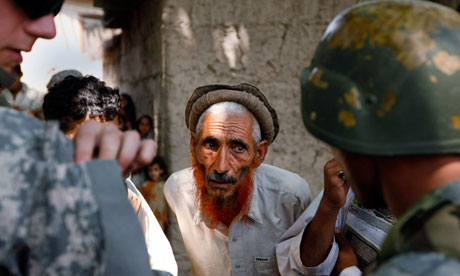-
Thursday 13 January 2011 14.15 GMT
- Article history

A smartphone app is being touted as the potential solution to the yawning linguistic gulf between US soldiers in Afghanistan and the Pashtun villagers they are trying to win over.
After a decade of relying on interpreters, the US military is testing a simultaneous translation programme that runs on an ordinary smartphone.
Developed by US defence department scientists, it can translate from English into Dari and Pashto, the two main languages of Afghanistan, and back again.
Transtac (short for "translation system for tactical use") is being tested by members of the 101st Airborne Division in the eastern province of Paktika.
David McKim, an intelligence officer with the US army, said the system was in a six-month test phase, with just a handful of devices likely to see action in Paktika.
"The idea is to give soldiers the ability to communicate, even if it is just on a basic level, with the Afghan people when an interpreter isn't available," he said.
Breaking down barriers and building trust between foreign soldiers and Afghans is one of the key ambitions of the counter-insurgency strategy being pursued in the country. But when kitted out with bulky body armour and blast-resistant sunglasses, US soldiers attempting to influence Afghan hearts and minds often look more like beings from another planet.
High-tech smartphones alone are unlikely to bridge the cultural gap, but the technology does seem to be a big step forward from the earlier "Phrasealator" employed in Afghanistan and Iraq. The relatively crude device simply contained a list of standardised, pre-recorded sentences and words that developers thought soldiers would find useful.
But although soldiers could choose a variety of phrases in English – which would then be reproduced in Arabic or Pashto – they could not translate the reply.
Good interpreters are scarce in the US military, which has been forced to pay huge salaries to attract Afghans who have adequate language skills and are prepared to undertake the dangerous work of foot patrols in a war whose hallmark weapon is the hidden roadside bomb.
The US also offers the best and longest-serving "terps" the chance to apply for US citizenship. Afghan-American citizens are also recruited, although there have been cases where middle-aged "cultural advisers" have struggled to keep up with their super-fit military colleagues.

No comments:
Post a Comment